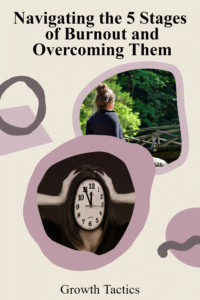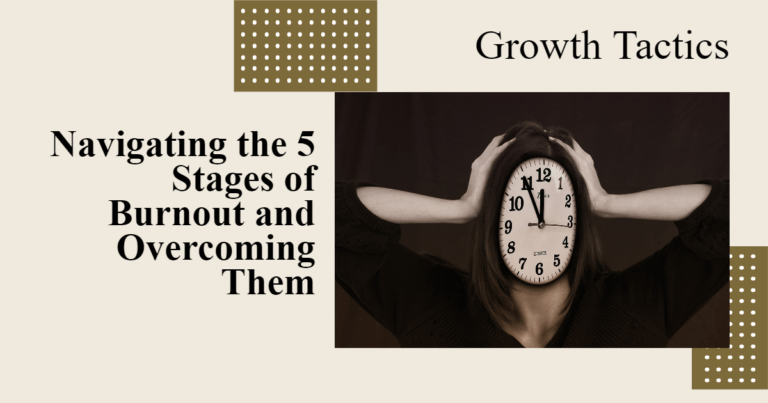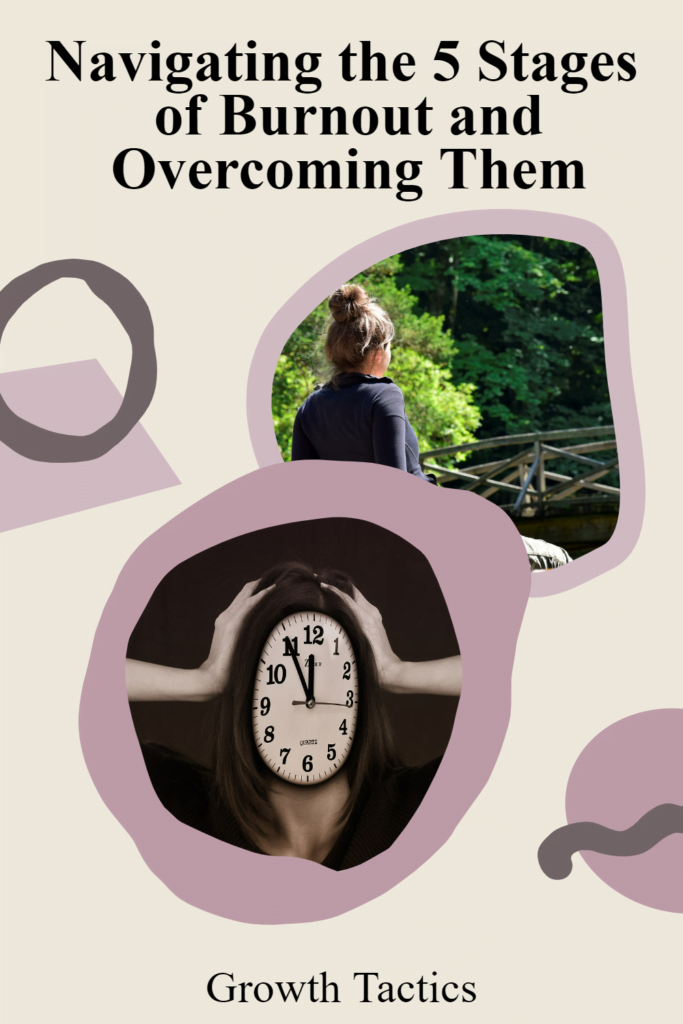In simple terms, burnout is a feeling of being exhausted, both mentally and physically. It’s like feeling really, really tired all the time, even when you rest. Burnout can happen when we have too much to do, and we don’t take enough time to rest and relax. Just like how our bodies need a break after working out, our minds also need a break from being busy all the time.
When we experience burnout, everything might start to feel overwhelming and hard to handle. It’s essential to understand what burnout is so we can recognize it and take steps to prevent it. Let’s explore more about burnout and how we can deal with it together!

Jump To Section
Spotting the Signs: What Does Burnout Look Like?
Recognizing burnout and its symptoms is crucial to addressing the issue before it becomes overwhelming. Let’s explore some common signs that indicate you may be experiencing burnout.
Feeling Extra Tired
One of the first signs of burnout is feeling extremely tired, even after a good night’s sleep. If you find yourself constantly exhausted and lacking energy, it might be a sign that burnout is creeping in.
Not Wanting to Do Fun Things
When burnout sets in, you may notice that activities you used to enjoy no longer bring you pleasure. If you find yourself disinterested in pursuing your hobbies or doing the things you love, it could be a sign that burnout is affecting your motivation.
Getting Upset Easily
Burnout can also make you feel more emotional and easily irritated. If you notice yourself getting upset or angry over small things that usually wouldn’t bother you, it might be a sign that burnout is taking a toll on your mental well-being.
The 5 Stages of Burnout
When it comes to feeling overwhelmed and exhausted, burnout can sneak up on anyone. It’s like slowly losing steam until you feel like you’re running on empty. Let’s break down the five stages of burnout into relatable parts that you might recognize in your own life.
The Honeymoon Phase
Remember that first day of work when everything felt brand new and exciting? That’s the honeymoon phase of burnout. You’re eager to tackle challenges and take on new tasks, feeling invincible and full of energy.
Onset of Stress
Just like when you start feeling a bit worried about a big project or tasks piling up, the onset of stress creeps in during this stage. It’s like a little voice in your head saying, “Uh-oh, this might be tough.”
Chronic Stress
As the days go by, that worry becomes a more familiar feeling. It’s like feeling anxious about work most days, wondering if you can keep up with all the assignments and tasks.
Burnout
Eventually, that constant stress can make you feel like work is overwhelming. It’s like hitting a wall and not wanting to go anymore because it all seems too much to handle.
Habitual Burnout
When feeling burnt out becomes a regular thing, like feeling tired every day or not enjoying things you used to love, you might be in the habitual burnout stage. It’s important to recognize these feelings and take steps to recover.
Taking a Break: How to Recover from Burnout
Dealing with burnout can be tough, but it’s important to know how to recover and feel better. Here are some tips that can help you when you’re feeling overwhelmed and burnt out:
Resting Is Important
If you’re feeling tired and worn out, it’s essential to take breaks and get enough sleep. Resting allows your body and mind to recharge, helping you feel refreshed and ready to tackle your day.
Talk About Your Feelings
It’s okay to share your feelings with someone you trust, like your friends, family, or teachers. Talking about what’s bothering you can help you feel better and less stressed.
Do Something Fun
Engaging in activities you enjoy, such as playing a game, drawing, or going for a walk, can help take your mind off stress and bring some joy back into your day. Doing something fun can help you feel more relaxed and happy.
Remember, it’s essential to take care of yourself and listen to your body when you’re feeling burnt out. By resting, talking about your feelings, and doing something fun, you can recover from burnout and feel better in no time.
Preventing Burnout: Staying Happy and Healthy
When it comes to preventing burnout, it’s all about finding that perfect balance between responsibilities and fun activities. By following some simple steps, you can keep burnout at bay and enjoy a happy, healthy school life.
Making Time for Play
It’s essential to make time for play and fun activities outside of work. Hanging out with friends, engaging in hobbies, or simply relaxing can recharge your batteries and help you feel refreshed. Remember, it’s okay to take a break and have some fun!
Healthy Habits
Eating well, getting enough sleep, and staying active are crucial for keeping burnout away. A healthy body supports a healthy mind, so be sure to prioritize your well-being. By taking care of yourself physically, you’re also taking care of your mental health.
Setting Small Goals
Instead of feeling overwhelmed by big tasks, try breaking them down into smaller, manageable goals. For example, focus on finishing one homework assignment at a time or completing one chore before moving on to the next. By setting small goals, you can build momentum and avoid feeling burnt out.
Daily Routines to Manage Burnout
It’s essential to take breaks during your study hours or playtime to relax and recharge your batteries. Whether it’s a quick walk outside, a few minutes of deep breathing, or listening to your favorite music, these short breaks can make a big difference in how you feel.
Balancing Work and Fun
Find ways to balance your work responsibilities with fun activities that you enjoy. Make a schedule that includes time for work, chores, and things you enjoy. By organizing your day, you can better manage your tasks and make time for things that make you happy, keeping your stress levels lower.
When to Ask for Help
Dealing with burnout can feel overwhelming, but it’s essential to know when to ask for help from those around you. Whether it’s your friends, boss, or a mentor, reaching out for support is a crucial step in managing your feelings of burnout.
Recognizing Your Limits
It’s important to recognize when your feelings of burnout are getting too intense for you to handle on your own. If you notice that you’re constantly feeling tired, overwhelmed, or unmotivated, it might be time to seek help. Don’t hesitate to talk to someone you trust about what you’re going through.
Talking to Mentors
When you’re feeling burnt out, talking to a mentor can make a world of difference. Whether it’s your boss or another trusted professional, expressing your feelings and concerns can help you feel supported and understood. These mentors can offer guidance and help you navigate through challenging times.
Seeking Professional Support
If you’re struggling to cope with your feelings of burnout, it’s okay to seek help from a professional. Therapists, or mental health professionals are trained to support you through difficult times and provide strategies to manage stress and overwhelm effectively.
Remember, asking for help is a brave and important step towards taking care of yourself and improving your well-being. Don’t be afraid to reach out when you need support!
Fun Activities to Beat Burnout
When you’re feeling overwhelmed and stressed, taking a break to have some fun can help you recharge and beat burnout. Here are some enjoyable activities that can distract you from feelings of exhaustion and help you feel refreshed:
Drawing or Coloring
Grab some colored pencils or markers and let your creative side shine! Drawing or coloring can be a relaxing way to focus your mind on something other than stress. You can create beautiful artwork or just doodle freely to unwind.
Playing Sports
Physical activity is a fantastic way to release pent-up tension and boost your mood. Whether you enjoy playing soccer, basketball, or even just shooting hoops in your backyard, getting active through sports can help you feel energized and rejuvenated.
Doing Puzzles
Puzzles are not only fun but also a great way to engage your brain and take a break from daily stressors. Whether it’s a jigsaw puzzle, crossword puzzle, or Sudoku, challenging your mind with puzzles can be a delightful way to relax and unwind.
Incorporating these fun activities into your routine can provide a much-needed break from burnout and help you regain your motivation and zest for life. Remember, it’s essential to take care of yourself both mentally and physically!
A Balanced Work Life
Having a balanced work life is super important to stay happy and healthy throughout the year. Here are some tips on how you can make sure you’re not feeling overwhelmed with work and other activities.
Managing Your Time Wisely
One key to balancing work and fun is managing your time wisely. Make a schedule or use a planner to keep track of your tasks, projects, and activities. By planning ahead, you can make sure you have enough time for everything without getting stressed.
Avoid Overcommitting
It’s great to be involved in extracurricular activities like sports, clubs, or music, but it’s important not to overcommit yourself. Choose activities that you truly enjoy and that fit well with your schedule. Remember, it’s okay to say no to something if you’re feeling overwhelmed.
Setting Priorities
When you have a lot on your plate, it’s essential to set priorities. Figure out what tasks are most important and need to be done first. By focusing on one thing at a time, you can avoid feeling overwhelmed and stay on top of your responsibilities.
Conclusion: Remembering to Take Care of Yourself
It’s essential to always remember to take care of yourself to avoid burnout and stay happy and healthy. By recognizing the signs of burnout early on, you can take steps to prevent it from escalating. It’s crucial to listen to your body and mind, knowing when to take a break and ask for help if needed.
Self-care plays a significant role in managing burnout. Just like we take care of our bodies by eating well and getting enough sleep, we need to take care of our mental well-being too. It’s okay to take breaks, engage in fun activities, and talk about your feelings with others.
Remember, balancing work with self-care time is key to preventing burnout. Setting small goals and making time for relaxation can help you stay on track and avoid feeling overwhelmed. If burnout does occur, don’t hesitate to reach out to a trusted mentor for support.
By incorporating these burnout prevention and management strategies into your daily routine, you can navigate the challenges of life with resilience and positivity. Always prioritize your well-being and remember that it’s okay to take care of yourself.


